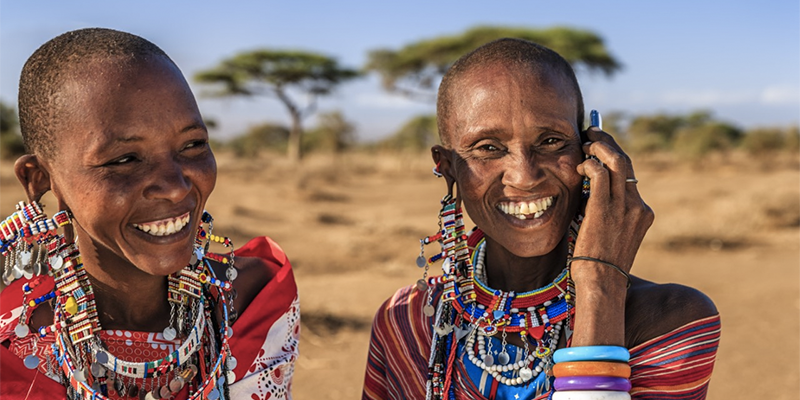48 Per Cent of the Population of Kenya Remains Unconnected to Mobile Networks
Nairobi: Kenya is making excellent progress to achieve its target of universal broadband coverage by 2030 and there is an opportunity for the government to accelerate the country’s digital transformation with more supportive policies. This was the key finding of a report released today by the GSMA, which highlights potential areas for policy reform that would support achievement of Kenya’s Digital Economy Blueprint, and broadband coverage goals.
The mobile market in Kenya has expanded rapidly over the last decade, with the percentage of Kenyans connected to mobile services increasing from 30 per cent in 2009 to 52 per cent in 2019. According to GSMA Intelligence this number has the potential to grow to 58 per cent by 2025.
In order to achieve this, the GSMA report urges Kenya’s government to follow best practice tax principles, simplify infrastructure deployment fees, and permit the tax deductibility of government payments. These, amongst other more supportive policies, would provide greater certainty for operators to invest in mobile networks and increase mobile penetration.
“Maintaining a more stable tax system is necessary to unlock the full value of mobile connectivity for the 48 per cent of people currently unconnected in Kenya,” said Akinwale Goodluck, Head of Sub-Saharan Africa, GSMA. “With growing mobile penetration, Kenyans stand to benefit from improved financial inclusion, digitally-enabled local entrepreneurship, innovative health and education systems, and growing numbers of e-government initiatives. By improving the business environment for mobile operators, all Kenyans could benefit from these economic and social benefits of mobile connectivity.”
The key findings from the report, ‘Mobile Taxation in Kenya: Accelerating Digital Development’, are highlighted below:
More supportive policies are key to securing Kenya’s digital leadership
The tax contribution of the mobile sector in Kenya is high compared to other countries in Sub-Saharan Africa (SSA), which risks limiting the growth potential of the country’s mobile sector. In 2018, the total tax contribution of the mobile sector was estimated at KES 97 billion ($954 million), representing 37 per cent of the total market revenue. This was above the average in SSA (26 per cent) and any other reviewed region, including Europe (21 per cent) and Latin America (18 per cent).
Further, the Kenyan mobile sector makes a large contribution in taxes and fees relative to its economic footprint; while the mobile market revenue accounted for 3 per cent of Kenya’s GDP, the sector’s tax and fee payments accounted for around 6.5 per cent of government total tax revenue. The tax contribution of the mobile sector is therefore 2.2 times its size in the economy. This is limiting mobile operator’s ability to make the necessary investments in Kenya’s mobile networks and improve the affordability of mobile services.
Improving the affordability of mobile services could boost economic growth
Mobile technology plays an important role in Kenya’s economic growth and for this to continue, significant investment in mobile networks, and addressing barriers to adoption, such as affordability, is required. In Kenya, affordability is hampered by excise taxes, which increase the cost of using mobile services.
Mobile operators in Kenya make a significant and valuable contribution to the economy and society. Total mobile sector revenues were KES 264 billion in 2018 ($2.6 billion), generating KES 133 billion ($1.3 billion) of direct economic value. This economic value constitutes over 1.5 per cent of Kenya’s gross domestic product (GDP). There is potential for the mobile sector to make a far greater economic and social contribution by increasing mobile connectivity, so everyone can participate in the country’s digital economy.
An uncertain tax environment could have detrimental impacts on the wider economy
The GSMA report argues that a short-term focus on the ICT sector for tax revenue could jeopardise the long term economic and social benefits of digital inclusion.
To illustrate this, the report analyses the potential detrimental effects of a hypothetical increase in the excise duty on mobile services from 15 per cent to 18 per cent. The study highlights that such a tax increase would potentially decrease Kenya’s GDP by $268m and reduce potential mobile subscribers by 950,000.
“Kenya is considered a front runner in digital transformation in the region. To maintain this position, the government must strike the right balance between tax revenue maximisation, and incentivising investment and economic growth,” added Akinwale Goodluck.
The report, ‘Mobile Taxation in Kenya: Accelerating Digital Development’, is available at www.gsma.com/mobile-taxation-in-kenya
-ENDS-
About the GSMA
The GSMA represents the interests of mobile operators worldwide, uniting more than 750 operators and nearly 400 companies in the broader mobile ecosystem, including handset and device makers, software companies, equipment providers and internet companies, as well as organisations in adjacent industry sectors. The GSMA also produces the industry-leading MWC events held annually in Barcelona, Los Angeles and Shanghai, as well as the Mobile 360 Series of regional conferences.
For more information, please visit the GSMA corporate website at www.gsma.com. Follow the GSMA on Twitter: @GSMA.
Media Contacts:
For the GSMA
GSMA Press Office
[email protected]


